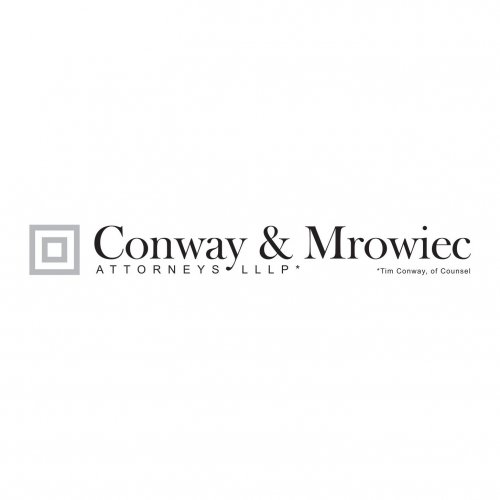Best Nonprofit & Charitable Organizations Lawyers in Chicago
Share your needs with us, get contacted by law firms.
Free. Takes 2 min.
List of the best lawyers in Chicago, United States
About Nonprofit & Charitable Organizations Law in Chicago, United States
Nonprofit and charitable organizations in Chicago, like in the rest of the United States, are entities that operate for the public benefit rather than for the profit of owners or shareholders. These organizations may include charities, foundations, educational institutions, social clubs, churches, and medical research institutions. In Chicago, these entities contribute significantly to the community by addressing various social, educational, and environmental issues. Nonprofits must comply with specific federal, state, and local regulations that govern their formation, operation, and dissolution.
Why You May Need a Lawyer
Engaging with nonprofit and charitable organizations often require specialized legal advice due to the complexity of laws governing them. Here are some common situations where legal assistance might be necessary:
- Forming a new nonprofit organization and obtaining tax-exempt status under 501(c)(3).
- Navigating complex regulatory landscapes to ensure compliance with federal, state, and local laws.
- Creating, reviewing, and negotiating contracts or partnership agreements.
- Dealing with employment-related issues, including volunteer and staff management policies.
- Handling intellectual property matters, such as trademarking a nonprofit's name or logo.
- Advising on board governance and fiduciary duties of directors and officers.
- Assistance in mergers, dissolutions, or transformations of existing organizations.
- Addressing fundraising regulations and compliance with solicitation laws.
- Guiding on strategic planning and operational best practices.
- Representing the nonprofit in legal disputes or litigation.
Local Laws Overview
Chicago-based nonprofits must navigate both Illinois state laws and local ordinances that impact their operations. Key aspects include:
- Incorporation: Nonprofits in Chicago typically incorporate under the Illinois General Not-for-Profit Corporation Act, which outlines procedures for operations and governance.
- Tax-Exemption: To be tax-exempt at the state and federal level, organizations must apply and qualify for 501(c)(3) status with the Internal Revenue Service (IRS) and may need additional state-specific exemptions.
- Charitable Solicitation: Registration with the Illinois Attorney General's office is mandatory for organizations soliciting funds, adhering to the Illinois Solicitation for Charity Act.
- Reporting Requirements: Nonprofits must file regular reports, like the annual report with the Illinois Secretary of State and the IRS Form 990, to maintain good standing.
- Employment Laws: Compliance with both federal and state employment regulations is crucial, including wage laws and anti-discrimination policies.
Frequently Asked Questions
What is the first step in forming a nonprofit in Chicago?
The first step is determining the purpose of your organization and ensuring it qualifies as a nonprofit under Illinois law. Following this, you will need to file Articles of Incorporation with the Illinois Secretary of State.
Do I need a lawyer to start a nonprofit?
While not mandatory, consulting with a lawyer who specializes in nonprofit law can help ensure compliance with complex regulations and can guide you through the process of incorporation and applying for tax-exempt status.
How can a nonprofit maintain its 501(c)(3) status?
To maintain 501(c)(3) status, nonprofits must meet reporting requirements such as filing an IRS Form 990 annually and comply with applicable laws and operational best practices.
Are there specific rules for fundraising in Chicago?
Yes, nonprofit organizations must comply with state-specific regulations concerning fundraising activities, including registration with the Illinois Attorney General's office under the Illinois Charitable Trust Act.
Can nonprofits engage in political activities?
Nonprofits with 501(c)(3) status are prohibited from engaging in political campaign activities but may participate in limited lobbying efforts related to their mission.
What are the fiduciary duties of a nonprofit board member?
Board members of a nonprofit have fiduciary duties of care, loyalty, and obedience, ensuring they act in the organization's best interest, avoid conflicts of interest, and comply with laws and the organization's mission.
Do nonprofits pay sales tax in Illinois?
Nonprofits may be exempt from paying sales tax on some purchases if they have applied for and received a tax-exempt letter from the Illinois Department of Revenue.
What is an endowment, and does it affect tax-exempt status?
An endowment is a fund where the principal amount is kept intact, and only the investment income is used for the organization's purposes. It does not directly affect tax-exempt status but must be managed according to donor restrictions and applicable laws.
How can a nonprofit protect its intellectual property?
Nonprofits should consider registering trademarks for their names and logos and ensure website content, publications, and other intellectual property are properly licensed or owned by the organization.
What should a nonprofit do if involved in a legal dispute?
If involved in a legal dispute, it is crucial for a nonprofit to seek legal counsel to navigate potential liabilities and to defend its interests effectively.
Additional Resources
Below are some recommended resources and organizations that can provide additional help and information:
- Illinois Attorney General's Charitable Trust Bureau: Offers guidance on registration and compliance with fundraising and solicitation laws.
- Internal Revenue Service (IRS): Provides forms and instructions for obtaining and maintaining tax-exempt status.
- Illinois Secretary of State's Office: Guides on incorporation and annual report filing requirements for nonprofits.
- Donors Forum of Chicago: A network that offers support services and educational opportunities for nonprofits.
- Pro Bono Organizations: Organizations such as the Chicago Lawyers' Committee for Civil Rights offer legal assistance to qualifying nonprofits.
Next Steps
If you need legal advice related to Nonprofit & Charitable Organizations in Chicago, consider the following steps:
- Identify your specific legal needs and issues to discuss with a lawyer experienced in nonprofit law.
- Research and reach out to legal professionals or law firms specializing in nonprofit and charitable organization law in Chicago.
- Engage with nonprofit networks or associations to find qualified legal referrals and support.
- Prepare necessary documents and information to ensure efficient communication and resolution of your legal inquiries.
With these steps, you can better navigate the nonprofit legal landscape and ensure the smooth functioning of your organization.
Lawzana helps you find the best lawyers and law firms in Chicago through a curated and pre-screened list of qualified legal professionals. Our platform offers rankings and detailed profiles of attorneys and law firms, allowing you to compare based on practice areas, including Nonprofit & Charitable Organizations, experience, and client feedback.
Each profile includes a description of the firm's areas of practice, client reviews, team members and partners, year of establishment, spoken languages, office locations, contact information, social media presence, and any published articles or resources. Most firms on our platform speak English and are experienced in both local and international legal matters.
Get a quote from top-rated law firms in Chicago, United States — quickly, securely, and without unnecessary hassle.
Disclaimer:
The information provided on this page is for general informational purposes only and does not constitute legal advice. While we strive to ensure the accuracy and relevance of the content, legal information may change over time, and interpretations of the law can vary. You should always consult with a qualified legal professional for advice specific to your situation.
We disclaim all liability for actions taken or not taken based on the content of this page. If you believe any information is incorrect or outdated, please contact us, and we will review and update it where appropriate.

















